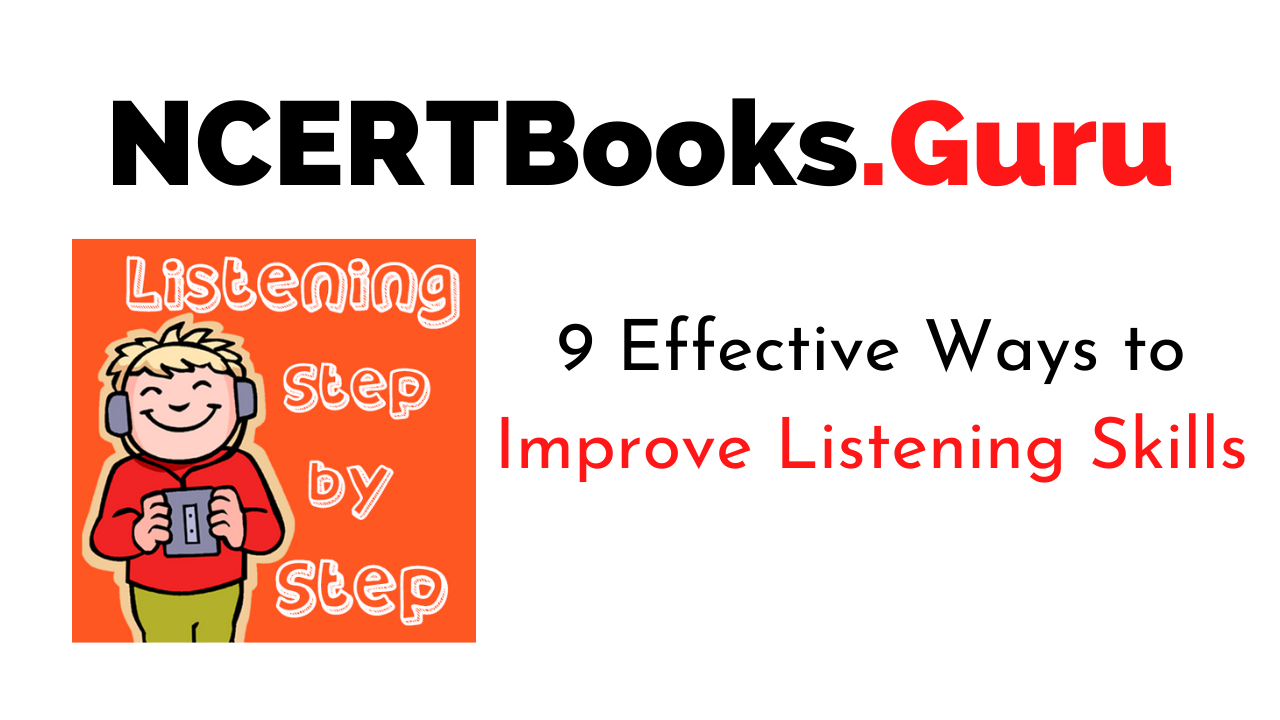Just like how we improve our talking skills over time, it is essential to improve our listening skills as well. Listening skills can make us better people as our relationships with people become better. We learn to make better decisions and also be able to communicate better. It is essential for people to understand that listening is just as critical as actively talking as it can help reach agreements with people.
By implementing active listening, we can create better professional and personal relations. Different businesses and organizations can work more efficiently and operate on a more optimum scale. Individuals will be able to enhance various characteristics like their leadership skills, their practical skills and so on.
Gather Information Regarding Basic English Skills and become proficient in the language and speak fluently with confidence. Try the Tips over here and Improve your English Writing and Speaking Skills.
How To Improve Listening Skills
There are different ways to become an active and better listener, and these are as follows.
- Keeping eye contact with the speaker
- Try to visualize what the speaker is saying
- Keep an Open Mind
- Don’t be too attached to the conversation, try to relax a little
- Don’t interrupt
- Wait for the speaker to stop to ask questions.
- Ask questions
- Give regular feedback
- Practice listening

Keeping Eye Contact with the Speaker
Trying to talk to somebody who keeps looking everywhere but at you can be frustrating, right? Just like that, it is vital to keep eye contact with people speaking, so they feel like they are being heard. This allows the speaker to be a little more confident in sharing information with you when eye contact is maintained.
Suppose the listener is continually trying to look at other objects around the room when the speaker is talking. In that case, it seems like the listener isn’t interested and wants to get out of the conversation as soon as possible.
Try to visualize what the speaker is saying
This is a crucial factor in trying to make sense of what the speaker is trying to communicate. The best way is to imagine yourself in the situation the speaker is talking about so that it feels like you are in the same situation, this will give you a clear idea of what the speaker is trying to say. Keep actively listening in case there is a change in the environment or characters because you have to try and implement these while trying to visualize. It is essential to imagine the entire scenario as it gives you a better perspective on what the speaker is trying to say. This will help in remembering important phrases and keywords during long conversations. So trying to build maternal images will benefit conversations a lot.
Keep an Open Mind
It is important to keep judgments to yourself because during personal conversations when a person is opening up to you; you will find the person trying very hard to express themselves and we must accept them for who they are at the moment. Don’t try to criticize the speaker when they are talking cause it can also cut their flow of communication and we won’t be able to finish the conversations. Unless you are very close to a person and you feel like you can interpret them and give them advice or criticize them then only you should. It is also best not to offer advice or solutions and just listen to them. Listen to everything they have to say before jumping to conclusions. Also, remember that you will never know what the speaker is going through and that they are trying their best to represent it in the language they speak.
Don’t be too Attached to the Conversation, try to Relax a Little
It is essential to understand that trying to be too attentive can come off in the wrong sense to the other party. It is important to be attentive but not glare at them constantly. Occasionally you can look away but always be present in the conversation. It is essential to note that the speaker must always feel you are listening to them; otherwise, they will lose interest. So be attentive, actively listen, be prepared to ask questions, apply or direct yourself and be ready to serve.
Don’t interrupt
It is important to note that when the speaker is trying to communicate something important to the listener, and when they get interrupted, it can stop their train of thoughts. Sometimes it can be perceived in the wrong way. Therefore it important to remember to wait for the speaker to finish before starting a conversation. When interrupting the speaker it can be seen as their idea or what they have to say isn’t as relevant as what you’re about to say, it can be viewed as their opinion isn’t necessary or doesn’t make sense, the conversation is some type of contest and i’m winning. So to avoid conflict of interests, it is best not to interfere.
Wait for the Speaker to stop, to Ask Questions.
Always asking clarifying questions when the speaker is talking can be irritating and perceived in the wrong way. To avoid all that, it is best to wait for the speaker to pause so you can ask the questions. You can ask them back up to a certain point in the story to get some clarity, and all this will make it seem like you are interested in and trying your best to figure out the story.
Ask Questions
By continually asking questions, you will understand better. It is better to understand the scenario than not clarifying doubts thoroughly. It is important to remember to wait for them to pause so that you can ask the questions. Only by clearing you adults can you advise them on what to do or come up with a solution to the problem. The problem with not understanding the situation is you don’t know if the decision the speaker is going to take is right or wrong, and if you advise them incorrectly, it can go wrong.
Give Regular feedback
Always giving feedback will give the speakers the idea that you are actively listening. By doing so, the speaker will feel that you are trying your best to give ideas to make better decisions. Giving feedback always will make them feel that you are trying to make the best out of their situation and that you want what’s best for them.
Practice listening
Always practising listening in our everyday lives can be beneficial and can help us in important meetings and such. It is important to remember that with constant practice will you become perfect. Try listening in everyday conversation, try and look out for non-verbal clues in the conversation, and you can paint the whole picture. It is essential to try this daily to achieve perfection.
Conclusion
Active listening plays a vital role in our personal lives and professional lives. Listening skill can make us better people as our relationships with people become better. We learn to make better decisions and also be able to communicate better. It is essential for people to understand that listening is just as essential as actively talking as it can help reach agreements with people. So be attentive, actively listen, be prepared to ask questions, apply or direct yourself and be ready to serve
